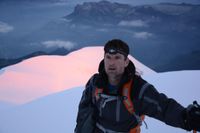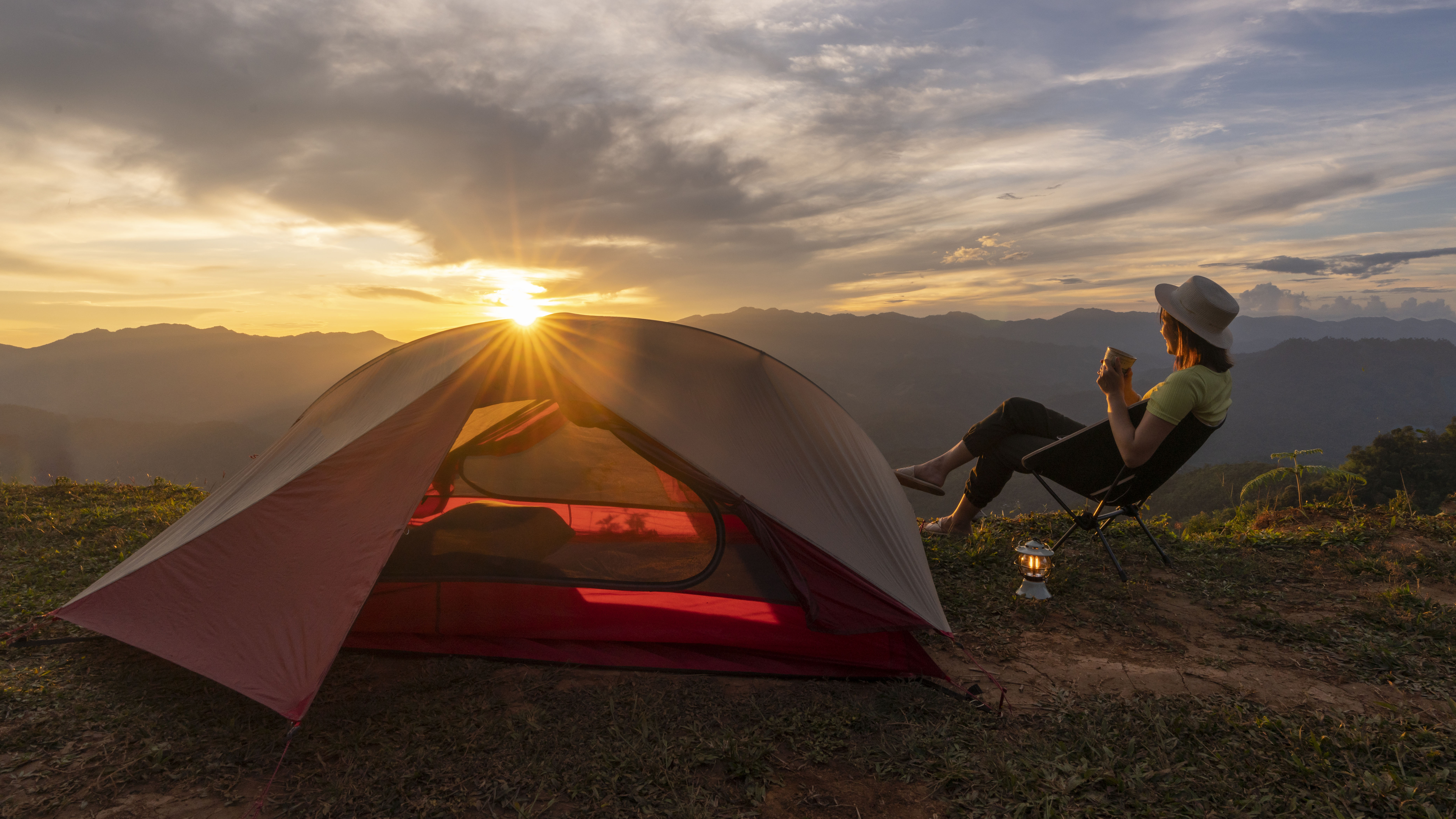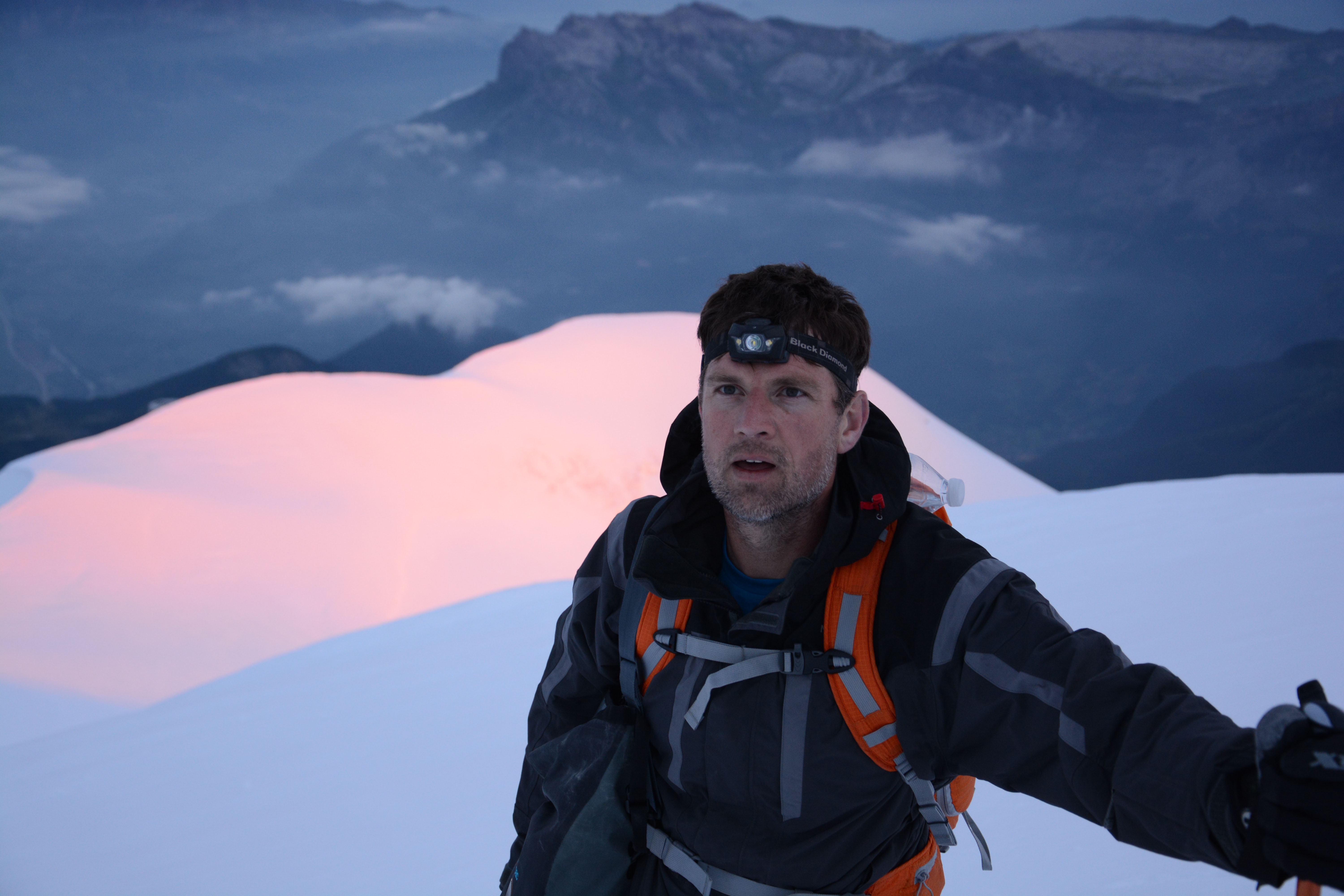I'm a camping expert and here are my nine best tips on how to ace your first trip
I have spent years sleeping in tents, quite literally, if you add up all the nights. Here are my top camping tips for beginners


Whether you’re going car camping with family and friends, staying overnight at a wild site, backpacking along a multistage trail, or simply planning a backyard sleepout, a little bit of know-how will go a long way to making your alfresco adventure enjoyable and memorable for all the right reasons.
Going camping is the perfect way to immerse yourself in nature, enjoy some green space and experience wildlife encounters. It’s also a cheap accommodation option, allowing you to explore far and wide without spending a fortune on hotels or rental properties, and it is a great way to spend quality time with your nearest and dearest.
Get it right the first time, and you will start scoping out your next tent-based trip straight away, but if things go horribly wrong on your maiden camping escapade, then it can leave long-lasting mental scars that might put you off the activity forever. I’ve seen that happen to plenty of people, and it’s a massive shame.
I’d recommend keeping your first camping trip relatively short (two or three nights) and going somewhere scenic but reasonably local – this just reduces the pressure that can build up around the mere thought of something going wrong while you’re miles from home. You can go further, explore more and get increasingly adventurous as your confidence builds. Like all journeys, getting off to a positive start is crucial.
Read on for more of my top tips on how to camp smart right from the beginning.

1. Kit and caboodle
Having the right gear will make a big difference to your early experiences, but there is a bamboozling amount of camping equipment available, and you don’t need to go out and buy everything all at once to have a great time. Camping is a simple concept – don’t put barriers in the way of just getting out there and trying it.
Make a list of the things that you think you might need – including little items like a lighter (many a non-smoker has been left looking mournfully at an unlit fire pit because they forgot to bring a flame), as well as absolute essentials such as a headtorch and/or flashlight (one for each person going camping, and a spare for emergencies) – and tick these off as you pack.
Get all the latest news, reviews, deals and buying guides on gorgeous tech, home and active products from the T3 experts

2. Give me shelter
The single most important thing you need is, of course, a good tent (the best tent, even) that can house you and the crew. There are myriad designs and all sorts of sizes out there – but for your first camping experience, keeping things simple is the secret to success. You obviously need enough room for everyone to sleep comfortably, and if you’re car camping, then having a vestibule where you can eat and hang out if it rains is really important.
Tip: Wet weather play – Take some playing cards and plenty of other games, just in case the weather turns against you.
Bigger isn’t necessarily better, though, and you don’t need a palatial tent that takes up half your car and requires hours of sweating and swearing to pitch in order to have a good time. (In fact, large tents get much colder during the night, so if you’re camping outside of summer, bear that in mind.) Tunnel tents are easy to put up, reasonably cheap to buy and can be found in a wide selection of sizes. Air tents are more of an investment, but they are really easy to assemble.

3. Sleep easy
Invest in the best camping bed (or lightweight sleeping mat if you’re backpacking) you can find and afford. A good base makes a big difference to how comfortable you feel and how much sleep you get, which in turn can be the difference between a good and a calamitous camping experience. Of course, decent sleeping bags are also important, especially if you’re backpacking, but in all honesty, if you’re car camping, then you can use duvets from home to keep cosy in your tent at night.
- Turn the light off! If your tent does not have blackout rooms, and you don’t like waking up at the first blush of dawn (5am or earlier for much of spring and summer), take a fabric eye mask.
- Quiet the chorus lots of people love the sound of the dawn chorus while camping, when birds sing the sun up, but it happens very early and drives others mad. If you’re part of the latter group, take ear plugs (also handy if there are snorers in a nearby tent).

4. Take a pew
Decent camping chairs are a good early investment too. Once your tent is pitched, you tend to spend quite a bit of time sitting on your backside while camping, which is one of the reasons people enjoy it, so get yourself a comfortable chair to chill in.
Something to cook on – either a backpacking stove or a camping grill – is essential, even on sites where you can have fires. But everything else – from cooler boxes and cooking sets to camping tables and lanterns – can be accumulated over time (although the simple joy of having a cold beer waiting for you after you’ve put the tent up is not to be underestimated).

5. Get to know your gear before you go
To make things much easier when you get to site, practise putting your new tent up in the privacy and non-pressurised environment of your own garden (or inside your flat/house if there’s room – many designs don’t necessitate putting the pegs in) before you go.
Also check to see whether you need anything specific to inflate your camp beds or fire up your camping grill – there’s nothing worse than getting semi set-up somewhere remote and then having to run around trying to find a camping shop that sells a little piece of kit.

6. Make a plan
Once you’ve cracked it and have all the kit you need stashed somewhere easily accessible, camping is beautifully simple, and the ability to spontaneously decide to head off for the weekend to the coast or explore a wild area is a massive part of the appeal. But, for your first outing under the stars, it’s well worth spending some time and making a proper plan. I still find scoping out an adventure one of the most exciting elements of the experience.
Decide where you want to go and do some research into the nearby camping facilities. Sites vary more than you might think. Plenty of commercial places pack lots of people into fairly featureless fields, but if you look around, you can usually find somewhere that offers at least the illusion of a wild experience, with trees and bushes creating a bit of privacy around your pitch.
Sitting around a firepit in the evening is a lovely part of camping, but not all sites permit people to have fires (often, for good reason, if pitches are close to one another). Check the rules and regulations of the site before you book.

Many sites are very family friendly – which is obviously great if you’re going camping with your own kids, but if you’re a young couple or a group of friends trying to enjoy an outdoor break, then the sound of other people’s little folk racing around and squealing at 7 am probably isn’t the sort of dawn chorus you’re hoping for. Equally, families won’t appreciate listening to people laughing and drinking around a campfire late into the evening.
Often larger places will split their site into family and non-family areas, but you can also find adult-only campsites if you search around. Some sites have curfews for music and will tell people to pipe down after a certain time, while others let campers do what they won't – find one that suits you.
During the warmer months, lots of farmers transform a field or two into a pop-up campsite. These are often very cheap places to pitch, but being temporary, the services are usually basic – often just a portaloo and a tap. This is all fine if it’s what you’re expecting and you’re prepared for it, but it’s not nice to start your camping experience feeling disappointed, so look into it properly, read some reviews and try to appreciate that – as always – you generally get what you pay for.

7. Pitch perfect
It’s rare to find a campsite, even a commercial one, that’s completely flat. Popular camping areas tend to be in scenic parts of the country where the landscape has been sculpted by the elements, and the terrain undulates, and if you’re going to sleep in a natural environment, you have to work around its lumps and bumps.
It’s tempting to pick the most level spot you can see, but before you start putting your tent up, go around and check the ground carefully. If it’s very soft, or there are lots of tall sprouting green plants, those are signs that it may get waterlogged after rain. If you’re only there for one night and the forecast and ground are both reasonably dry, that won’t be a problem, but if you’re setting up camp for a week, then it’s worth looking for a different spot – no one wants to wake up in a swamp.
If there are no signs of sogginess, then check the ground for sharp sticks and stones, and clear them away. Nothing gets a camping trip off to a worse start than your inflatable camp bed getting punctured on the first night.
Once you’ve decided on a site and done your ground checks, unfurl your tent and arrange it the way you would like it to be positioned. If you are putting up a big tent with a large vestibule for sitting in, it obviously makes sense to try and have this facing the best views rather than overlooking a toilet block.
There are lots of other considerations here, though. It’s best to position the tent so that the main door isn’t facing the wind; otherwise, it’s going to start acting like a giant windsock at some point.
If you’re in a small tent, and you’re on a slope – even a seemingly slight one – make sure you arrange things so your head is higher than your feet. Avoid having to sleep side-on to the hill, especially if you’re sharing a tent or sleeping space because you will inevitably roll with gravity and either end up squished against the lower side of the tent (which can let moisture in if the inner touched the fly sheet) or squashing the person sleeping downhill from you.

8. Keep things tidy
Get things organised from the very beginning, and then try and keep your tent and campsite tidy. If you know where to find things (especially essentials like torches), it makes the whole experience better, and you are less likely to lose little items.
If you have camping furniture, such as drawers, use it to store things like fleece in an orderly way, so you can reach them easily when they’re required. If you’re relying on little wall pockets on the inner tent, use these to stash headlamps and other essentials that you might need to lay your hands on quickly.
It’s a good idea to take flip-flops or Crocs to use as slippers in and around the tent and to keep all your wet and muddy stuff – like hiking boots, wellies and wet waterproofs – out in the vestibule.

9. Have fun
Above all, camping should always be great fun. Try and be relaxed and just roll with it, no matter what happens. Make some memories and learn some tips and tricks of your own to make the next camping outing even more enjoyable.

Author of Caving, Canyoning, Coasteering…, a recently released book about all kinds of outdoor adventures around Britain, Pat Kinsella has been writing about outdoor pursuits and adventure sports for two decades. In pursuit of stories he’s canoed Canada’s Yukon River, climbed Mont Blanc and Kilimanjaro, skied and mountain biked across the Norwegian Alps, run ultras across the roof of Mauritius and through the hills of the Himalayas, and set short-lived speed records for trail-running Australia’s highest peaks and New Zealand’s nine Great Walks. A former editor of several Australian magazines he’s a longtime contributor to publications including Sidetracked, Outdoor, National Geographic Traveller, Trail Running, The Great Outdoors, Outdoor Fitness and Adventure Travel, and a regular writer for Lonely Planet (for whom he compiled, edited and co-wrote the Atlas of Adventure, a guide to outdoor pursuits around the globe). He’s authored guides to exploring the coastline and countryside of Devon and Dorset, and recently wrote a book about pub walks. Follow Pat's adventures on Strava and instagram.